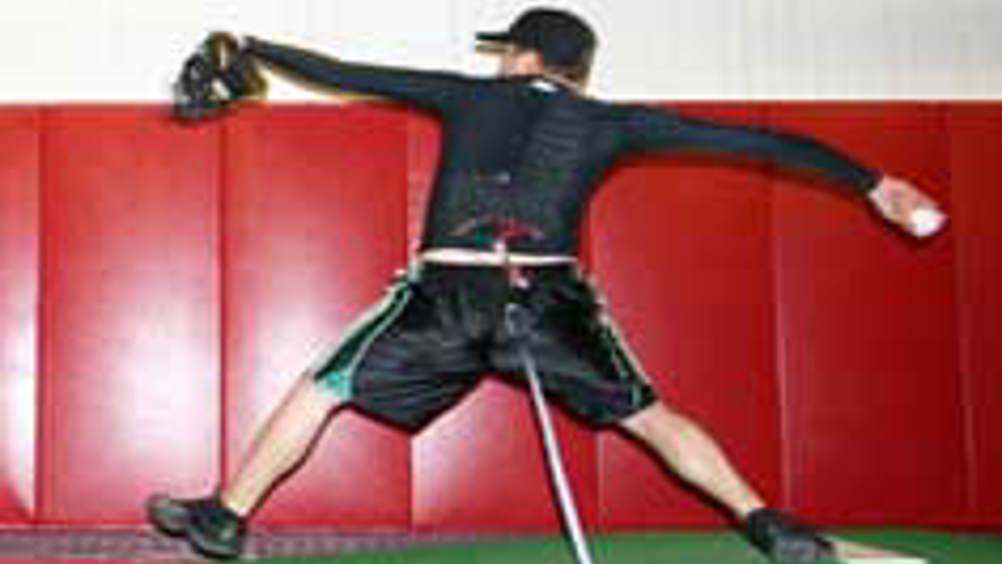Shirt analyses pitching techniques
Elbow injuries suffered by pitchers in Major League Baseball occur frequently and result in tens of millions of dollars lost in salaries to pitchers who cannot perform due to injury.

To address this issue, three Northeastern University engineering students have developed a data-logging shirt for pitchers that can help prevent elbow injuries while providing an electronic analysis of pitching.
The shirt was developed by Marcus Moche, Alexandra Morgan and David Schmidt as a Capstone Design Project - a senior-level team project that requires students to solve a real-world engineering problem or develop a viable product.
’No single device for measuring the quality of pitching currently exists, so we have proposed a shirt that is lightweight and can be worn during bullpen sessions or exhibition games,’ said Moche. ’The shirt can be used to show when a player becomes fatigued and his mechanics worsen, through a display of real-time information on a monitor in the dugout.’
Pitchers become more susceptible to injury when they lose consistency in how they throw the baseball, pitch after pitch.
Such a loss can increase the likelihood of a pitcher tearing the ulnar collateral ligament (UCL), the ligament that prevents lateral stress on the elbow. According to the students’ research, UCL injuries result in upwards of $54m (£36m) in salary losses each season.
Register now to continue reading
Thanks for visiting The Engineer. You’ve now reached your monthly limit of news stories. Register for free to unlock unlimited access to all of our news coverage, as well as premium content including opinion, in-depth features and special reports.
Benefits of registering
-
In-depth insights and coverage of key emerging trends
-
Unrestricted access to special reports throughout the year
-
Daily technology news delivered straight to your inbox










UK car production falls in April
Might the ´combination of factors´ include, in the face of stagnant EV sales, manufacturers reducing ICE car production in order to avoid the £15,000...